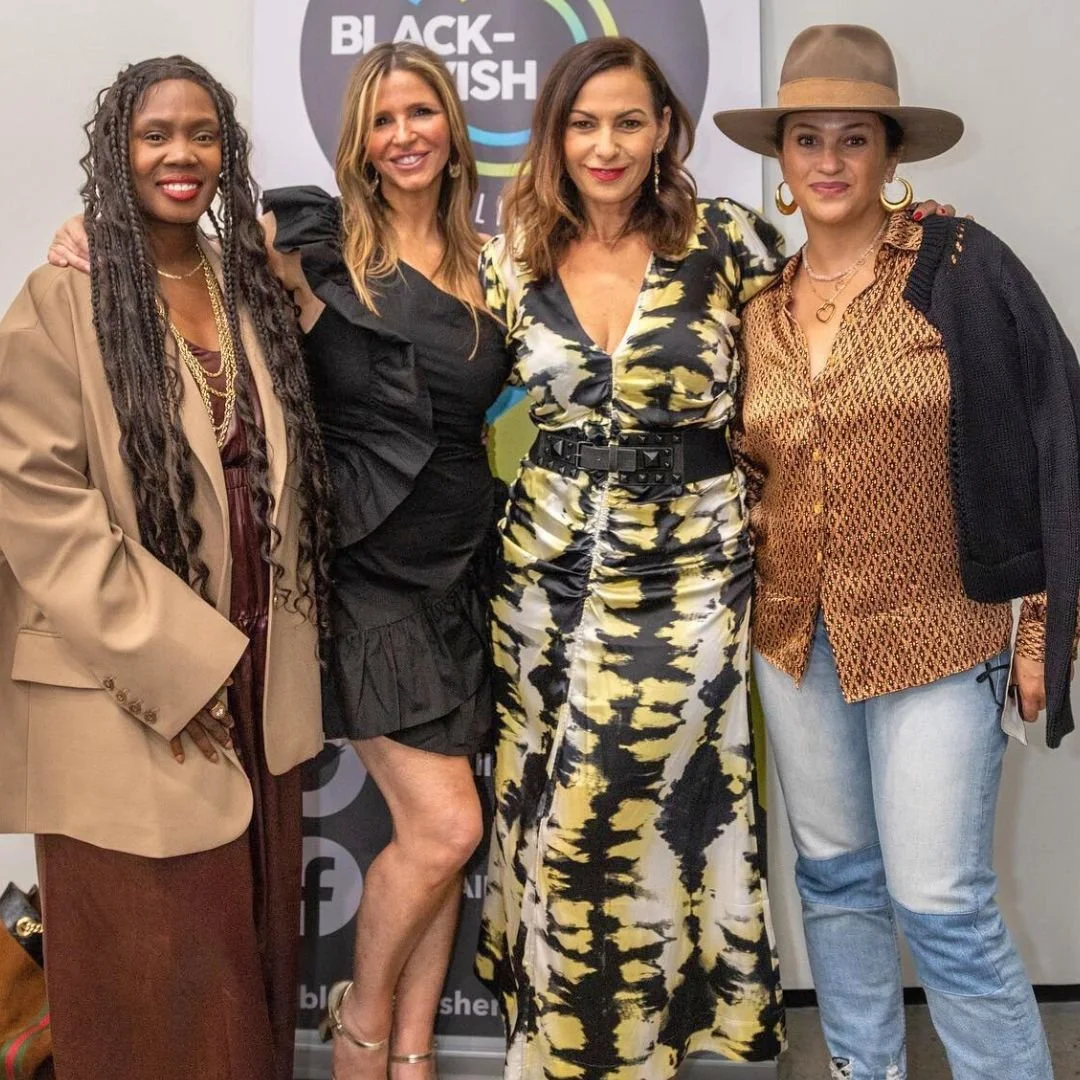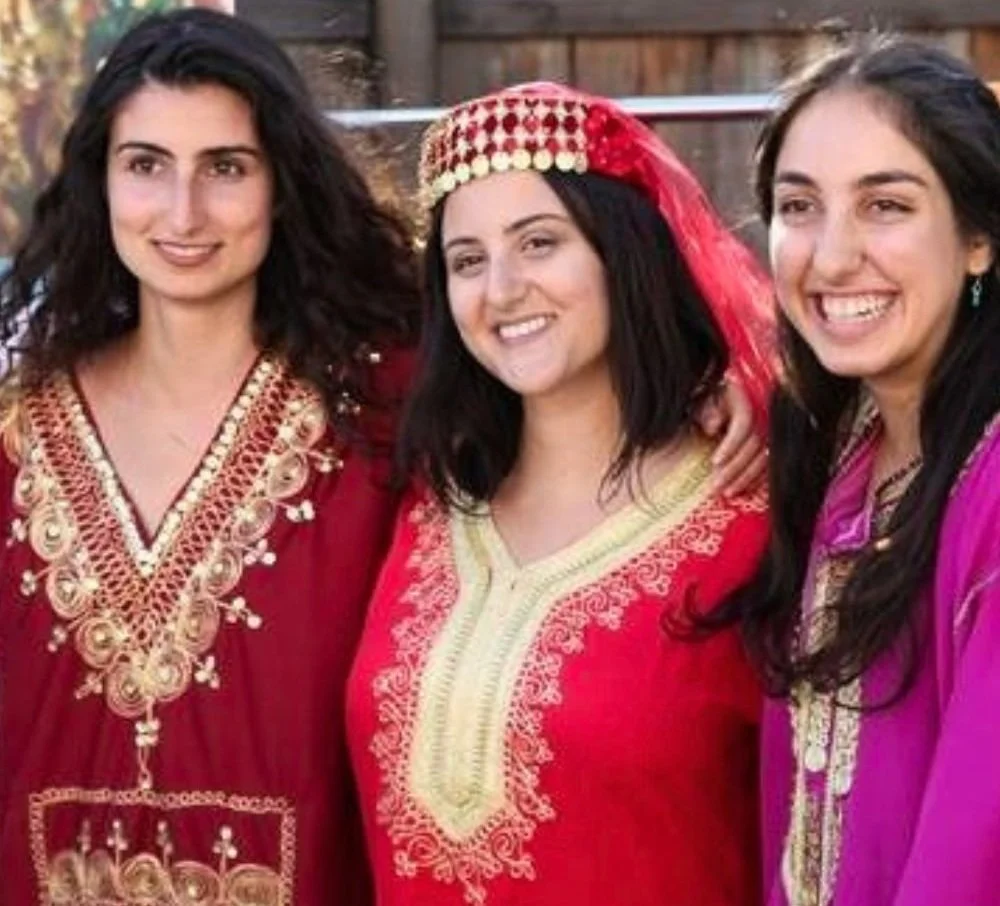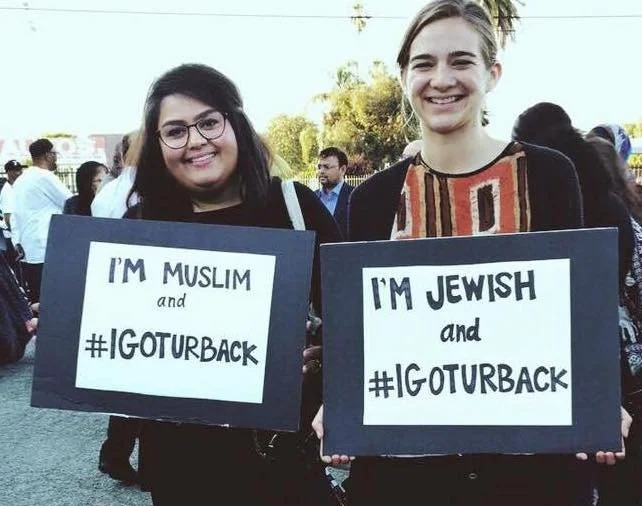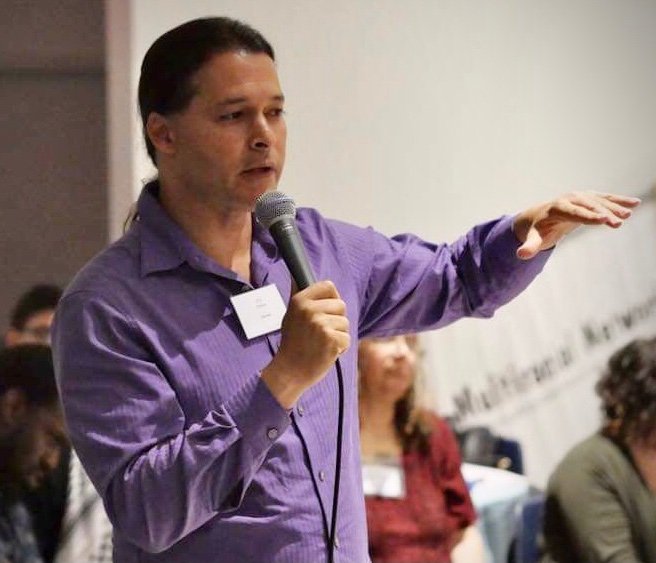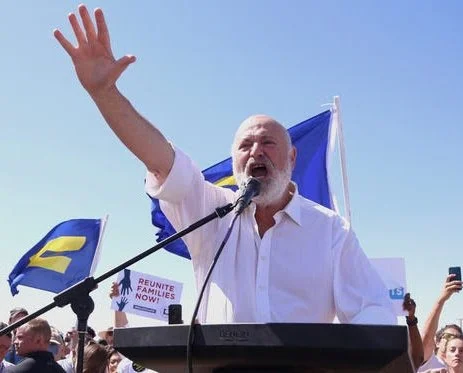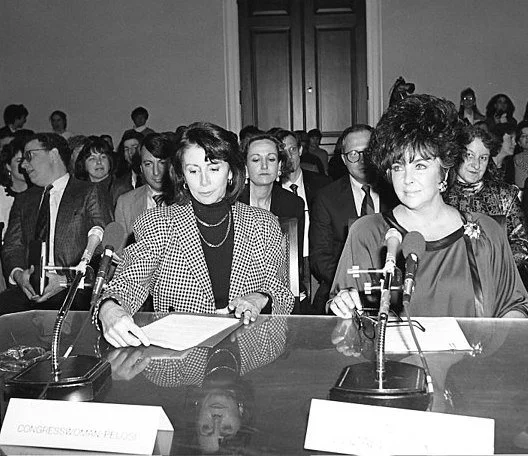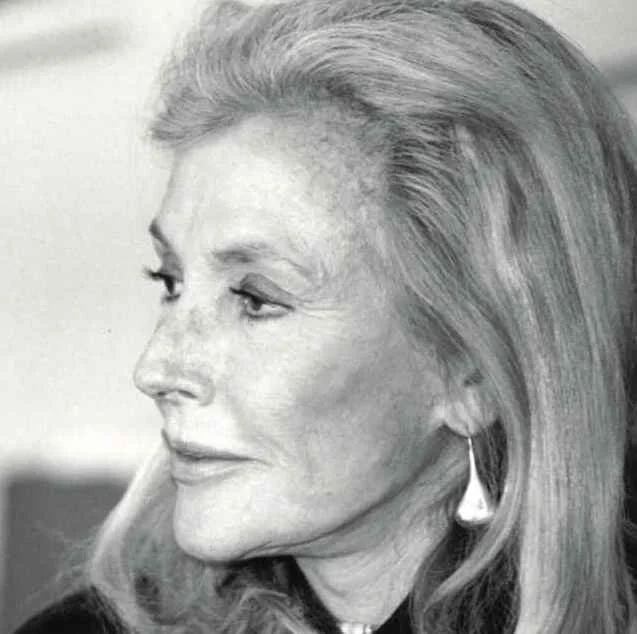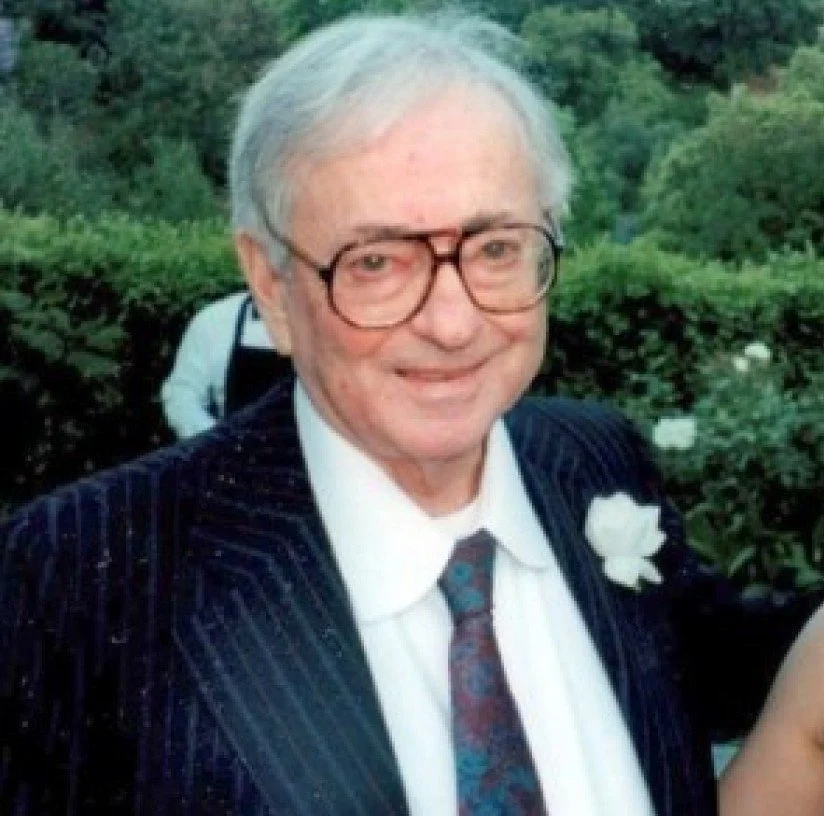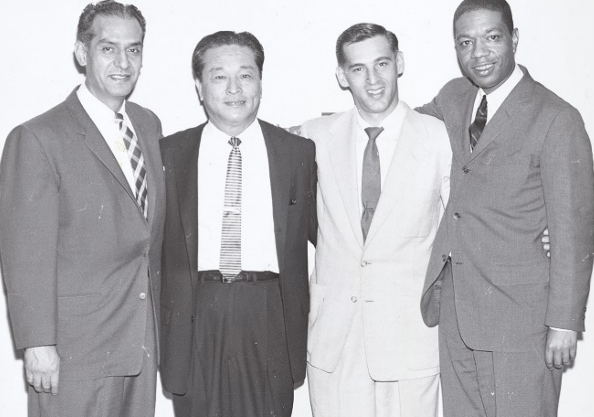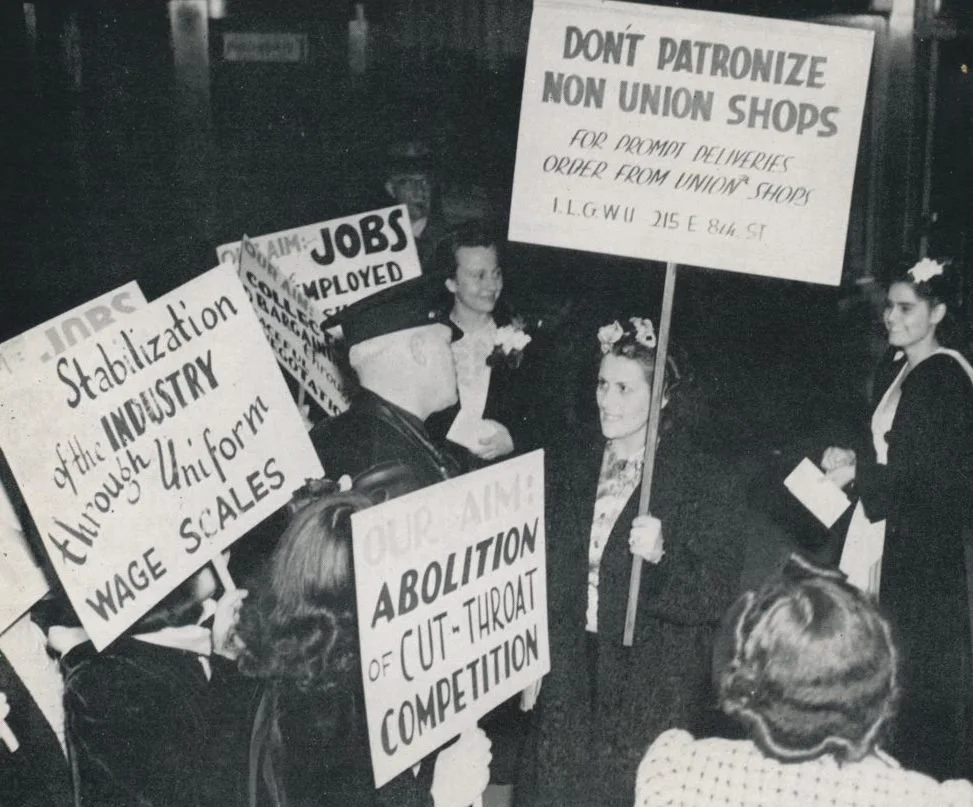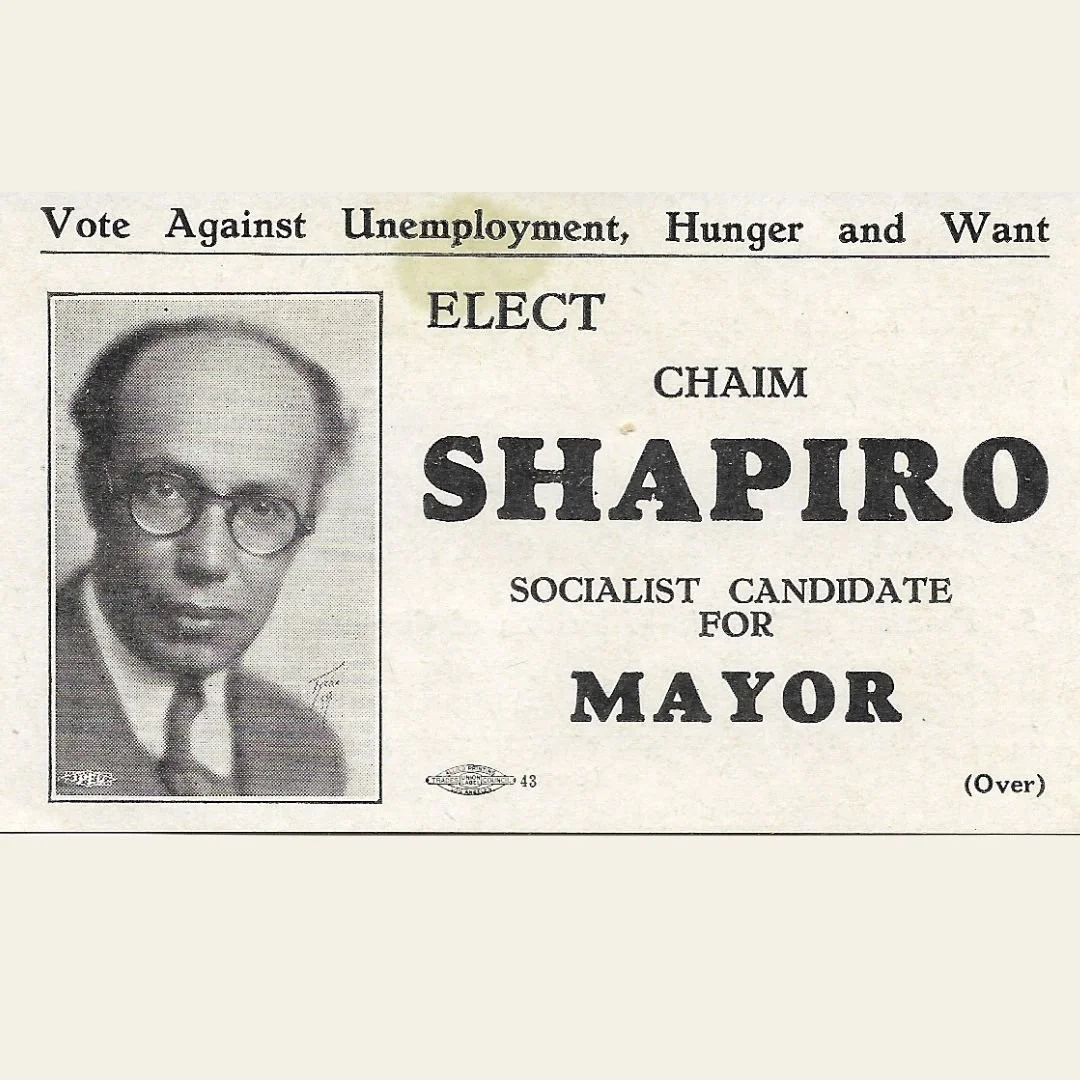
One Hundred Years
-
![]()
Kayla Hayempour 2021
Kayla Hayempour, inspired by the documentary Period. End of Sentence, embarked on a mission to combat period poverty and challenge menstrual taboos. Through her involvement with Girls Learn International and then founding a chapter at her school, she has been instrumental in promoting menstrual equity and student activism. As a Girl Delegate to the UN Commission on the Status of Women, she continues to advocate for sexual and reproductive rights. Thanks to the support of the Jewish Federation of Greater Los Angeles, her project "Petticoats Rule" has provided 150 reusable menstrual kits to organizations in Nigeria and a local bridge housing site, Casa Azul.
-
![]()
The Black Jewish Entertainment Alliance 2021
The Black-Jewish Entertainment Alliance was established in early 2021 as a response to antisemitism and racism in the entertainment industry, inspired by the historic bond between Rev. Martin Luther King Jr. and Rabbi Abraham Heschel. The alliance's "Unity Statement" garnered support from 170 Black and Jewish entertainment leaders, including prominent figures like Tiffany Haddish, Rashida Jones, Daveed Diggs, and Tracee Ellis Ross. Through regular programming and virtual town halls, the Alliance promotes mutual learning, explores shared history and experiences, and highlights the creative collaboration between the Black and Jewish communities in the music industry. Additionally, the organization plans to organize in-person trips to significant locations for both communities in the future.
-
![]()
JIMENA 2015
JIMENA (Jews Indigenous to the Middle East and North Africa) was founded by former Jewish refugees from the Middle East and North Africa to advocate for the recognition of Mizrahi and Sephardic Jewish refugees and their descendants. As the primary advocacy organization for Mizrahi and Sephardic Jews in North America, JIMENA works to uphold their basic human rights and raise awareness of their confiscated cultural and personal properties. Through personal testimonies at international forums and collaborations with legislative bodies, JIMENA has played a pivotal role in advancing legislation and policies that protect the rights of exiled Jewish communities. Since establishing a Los Angeles chapter in 2015, JIMENA has actively engaged and educated the local community about the stories and experiences of the 850,000 Middle Eastern Jewish refugees and their descendants.
-
![]()
Aaron Samuels 2013
Aaron Samuels, the Black and Jewish Chief Operating Officer and co-founder of Blavity, Inc., established the media platform in 2014 to challenge negative narratives about Black Americans and reshape media representation. With a readership of 60-80 million per month, Blavity has made a significant impact. Samuels also launched Afrotech in 2017, a conference and web platform focused on Black entrepreneurs and tech professionals, combatting the absence of Black people in tech. The conference, attended by over 6,000 individuals and 400 startups, transitioned to a virtual format during the pandemic, attracting over 15,000 participants through a video game platform that facilitated real conversations and interactive experiences. Guided by the Jewish concept of Tikkun Olam, Samuels works towards addressing systemic inequities as a Jew of Color, leveraging his position to strive for solutions and social change.
-
![]()
Judy Mark 2013
Judy Mark, a passionate advocate for the self-determination of people with disabilities, recognized the lack of agency individuals and their families had in making important life decisions. Inspired by her autistic son's experiences, she took action and co-led the successful effort to pass the groundbreaking California Self-Determination Law in 2013, granting individuals with disabilities greater choice and control over their services and support. In 2016, Mark founded Disability Voices United (DVU) to ensure the implementation of the law and amplify the voices of people with disabilities, aiming for systemic change and addressing issues such as racial disparities, police brutality, fair wages, and equitable access to the COVID-19 vaccine.
-
![]()
Rachel Sumekh 2010
Rachel Sumekh, while an undergraduate at UCLA, co-founded Swipe Out Hunger after discovering the alarming prevalence of food insecurity among college students. Recognizing its detrimental impact on various aspects of student life, including academic performance and mental well-being, Sumekh and her team initially developed a program allowing students to donate their meal swipes. Despite initial resistance, this innovative approach gained traction and expanded nationwide, leading Swipe Out Hunger to become a million-dollar nonprofit. Their efforts have provided over 2 million meals to students across 132 campuses in the United States and Canada. In addition to direct support, Swipe Out Hunger advocates for student rights and has successfully championed the Hunger Free Campus Bill, securing significant funding for campus food security initiatives. Through their work, food insecurity on college campuses is actively addressed and destigmatized.
-
![]()
NewGround: A Muslim Jewish Partnership for Change 2006
NewGround: A Muslim-Jewish Partnership for Change was founded in 2006 to address strained relations between Muslims and Jews in Los Angeles following 9/11 and Middle East conflicts. Through its programs and initiatives, NewGround has successfully transformed the state of Muslim-Jewish relations in the city, fostering understanding and cooperation. It has brought together emerging leaders through conflict resolution training, facilitated educational partnerships between mosques and synagogues, and organized the largest gathering of Muslims and Jews on the West Coast during its annual Community Iftar. NewGround alumni have initiated impactful projects, including a film about a Muslim diplomat saving Iranian Jews during the Holocaust and a blood drive during the COVID-19 pandemic. The organization continues to tackle racism, Islamophobia, and anti-Semitism through its Courage Accelerator program, uniting both communities in the fight against discrimination.
-
![]()
Eric Greene and Ingrid Gumpert 2005
Eric Greene and Ingrid Gumpert, both from multiracial backgrounds, joined forces in Los Angeles to create opportunities for Jews of Color. They started organizing Shabbat dinners and social gatherings, fostering a nascent community that would grow into a significant movement. Their leadership provided a sense of belonging and a platform for Jews of Color to come together, advocating for representation and producing educational plays to raise awareness about their experiences. Through their efforts, they paved the way for increased visibility and understanding of Jews of Color in mainstream Jewish spaces.
-
![]()
Jewish World Watch 2004
Jewish World Watch (JWW) was founded by Rabbi Harold Schulweis and Janice Kamenir-Reznick in response to the violence in Darfur, Sudan. Guided by the principles of education, advocacy, and direct action, JWW raises awareness and funds to combat genocide and support survivors. Through their efforts, JWW has provided vital assistance to over 500,000 survivors, addressing issues such as child soldiering, refugee support, and advocating for the rights of marginalized communities. JWW's work serves as an embodiment of Jewish values in action, inspiring people of all backgrounds to join the global fight against genocide and mass atrocities.
-
![]()
Rob Reiner 1997
Rob Reiner, a prominent director, actor, and comedian, spearheaded efforts to prioritize early childhood development services in California. In 1997, he launched the "I Am Your Child" campaign, raising public awareness about the welfare of children aged zero to three. Reiner then chaired the successful campaign for Prop 10, a California ballot initiative that implemented a tax on cigarettes to fund early childhood education. Despite facing opposition from the tobacco industry, Prop 10 passed, leading Reiner to become the chairman of First 5 California. Under his leadership, the organization provided essential health and childcare services to families, including school readiness, nutrition, and preschool for special needs. Reiner's activism extended beyond early childhood development, as he also played a pivotal role in the fight for marriage equality through his involvement with the American Foundation for Equal Rights.
-
![]()
Wilshire Boulevard Temple Karsh Center 1988
Wilshire Boulevard Temple established The Karsh Center in 1988 to address hunger in Los Angeles Koreatown. Since then, it has grown to provide a range of integrated social services to the community, becoming a model for neighborhood-based support and collaboration. Services now include dental and vision care, mental health support, pro bono legal clinics, grief counseling, groceries, clothing vouchers, and baby supplies. The Karsh Center's partnership with local organizations like Korean Health Education Information & Research (KHEIR) exemplifies its commitment to interfaith understanding and social justice. Throughout the pandemic, the center continued its vital work, distributing thousands of meals, groceries, diapers, and books, while also partnering to bring COVID-19 vaccinations to Koreatown.
-
![]()
MAZON 1985
MAZON has led a transformative anti-hunger movement in the US, advocating for change in food access systems and reshaping the thinking of direct service organizations. By focusing on the intersection of hunger and civil rights, MAZON recognizes that inadequate access to nutritious food hinders opportunities for success. As the only national Jewish anti-hunger organization, MAZON amplifies Jewish values and traditions in their work for greater food justice. Their successes include expanding food assistance programs in Nebraska, Tennessee, Louisiana, and North Carolina, benefiting thousands of families in need. Today, MAZON remains dedicated to ending hunger across diverse communities in the US and Israel, particularly in response to the growing crisis exacerbated by the COVID-19 pandemic.
-
![]()
Elizabeth Taylor 1984
Elizabeth Taylor, the Hollywood film legend and Jewish activist, became a pioneering advocate for those affected by the HIV/AIDS crisis. Starting in 1984, she organized fundraisers and partnered with medical professionals to launch foundations dedicated to AIDS research and treatment. Taylor used her influence to raise awareness, testified before Congress, and convinced President Ronald Reagan to address the disease. Personally impacted by the loss of her friend and co-star Rock Hudson, Taylor became a passionate advocate driven by a desire to use her fame for good and provide support to those affected by HIV/AIDS.
-
![]()
Rabbi Stan Levy, Bet Tzedek 1975
Founded in 1974 by Luis Lainer and Rabbi Stan Levy, Bet Tzedek ("house of justice") is a nonsectarian legal service organization dedicated to supporting the Jewish community and those in need. Initially focused on providing free legal counseling and using Jewish law to resolve disputes, Bet Tzedek has grown to address a wider range of issues. From assisting low-income Jewish residents with wills and unemployment benefits to tackling unlawful evictions and advocating for fair treatment in the workplace, Bet Tzedek remains a vital resource, recruiting a large network of pro bono attorneys and volunteers to provide essential legal support to over 50,000 individuals annually.
-
![]()
Ramona Ripston 1972
Ramona Ripston was a fearless advocate for civil rights, tirelessly fighting against racial discrimination, bad police practices, and championing the rights of immigrants, women, the LGBTQ community, and equal education. As the first woman to lead a large ACLU affiliate, she achieved significant victories, including desegregating schools and redrawing racist voting districts. Ripston's impact extended to economic justice and homelessness, launching landmark litigation that secured funding for rundown schools and preventing arrests of people sleeping on sidewalks. Her legacy reminds us that addressing poverty is essential for upholding the promises of equity and justice for all.
-
![]()
Bayard Berman 1961
In 1961, Mary Ellen Crawford's attempt to enroll at South Gate High School was denied due to discriminatory attendance boundaries set by the Los Angeles Unified School District (LAUSD). Her parents filed a lawsuit, which eventually grew into a class action suit led by the ACLU. Entertainment lawyer Bayard Berman took on the case pro bono and argued for integration during a months-long trial. In 1970, the judge ruled in favor of integration and ordered the district to desegregate all schools. Although busing ended in 1979, the creation of magnet schools as part of a voluntary desegregation plan became a lasting legacy of the historic lawsuit, bringing Los Angeles schools closer to equity for Black and Brown students.
-
![]()
Didi Hirsch 1958
Didi Hirsch, a trained social worker, championed the belief that mental illness is a health condition and should be addressed holistically. In 1958, she founded the Didi Hirsch Suicide Prevention Center, the nation's first of its kind, offering comprehensive services to those affected by suicide. Didi and her husband played a crucial role in establishing a new headquarters for the center and expanding its reach. Today, Didi Hirsch Mental Health Services serves hundreds of thousands of clients across multiple locations, providing vital support and changing the perspective on mental health, substance abuse, and suicide prevention, all guided by Didi's vision of removing stigma and treating individuals with dignity.
-
![]()
Saul Alinsky 1949
Edward R. Roybal's historic election to the Los Angeles City Council in 1949 marked a significant milestone for the Mexican American and person of color representation. Inspired by Saul Alinsky's community organizing seminar, Roybal's grassroots efforts gained support from a diverse coalition that included Blacks, Latinos, Jews, Japanese Americans, labor, leftists, and liberals. With the backing of the Jewish community, Roybal secured victory and served on the City Council for 13 years, advocating for the marginalized and fighting for the well-being of all Americans. His legacy continued as his daughter, Lucille Roybal-Allard, became the first Mexican American woman elected to Congress, maintaining strong ties with the Jewish community and Israel.
-
![]()
Jewish Labor Committee 1934
In response to the dangers of fascism, a gathering of 6,500 Angelenos in 1934 led to the formation of the L.A. chapter of the Jewish Labor Committee (JLC). The JLC raised awareness about the threat of fascism, organized boycotts of German-made goods, and provided aid to Jewish communities affected by Nazi persecution. During World War II, they collected donations for war-torn Europe and aided in the resettlement of Holocaust survivors. In the postwar years, the JLC fought discrimination and established committees for fair employment and housing practices. Today, the JLC continues to support trade unionists and participate in coalitions for social justice.
-
![]()
Rose Pesotta 1930
Rose Pesotta, a Ukrainian immigrant and former seamstress, became a prominent union organizer in the 1920s and later worked to organize dressmakers in Los Angeles. Despite initial dismissiveness from male union leaders and resistance from women workers, Pesotta played a key role in a successful strike in 1933, which resulted in recognition of the union, collective bargaining, and improved working conditions. She worked as an organizer for the International Ladies Garment Workers Union (ILGWU) across the United States, Canada, and Puerto Rico, advocating for the rights of minority groups and women. Her efforts demonstrated the strength and potential of women workers in the labor movement.
-
![]()
Chaim Shapiro 1930
Chaim Shapiro, a lifelong socialist and activist, began his political journey in Russia, organizing against violent pogroms and participating in the 1905 Revolution. He later moved to Los Angeles, where he became a prominent leader for the Yiddish-speaking community. He founded and led various organizations dedicated to equity and human rights, including the local branch of the Arbeter Ring and the city's first Yiddish school. Shapiro actively supported socialist causes and ran for lieutenant governor of California and in the mayoral primary of Los Angeles, advocating for progressive policies such as a shorter workday and unemployment insurance.
-
![]()
Rose Chernin 1929
Rose Chernin, a Russian Jewish immigrant, dedicated her life to fighting for disenfranchised Americans, including the unemployed during the Great Depression, farmworkers, Black homeowners, and those targeted during McCarthyism. Despite facing government repression, Chernin's tireless activism laid the groundwork for future generations of organizers challenging the status quo. She organized protests against price gouging and supported rent strikes, defending the rights of activists arrested under unjust laws. Chernin fought for housing rights and labor rights, and despite facing imprisonment and pressure to disclose names, she refused to betray her fellow activists. Her efforts led to landmark legal decisions protecting housing and protest rights, making a lasting impact on American political expression.
-
![]()
Jewish Bakers Union 1923
The Jewish Bakers Union, Local 453, was founded in 1923 by Yiddish-speaking Jewish immigrants from Eastern Europe in Boyle Heights. They aimed to empower the working-class residents by using cooperative self-help and mutual aid to build Yiddish-based institutions. By picketing, as well as promoting the purchase of union label Jewish baked goods, the bakers injected national and class-based meanings into the act of buying bread, replacing traditional religious values with secular values of Yiddish socialism. Their activism created a broad-based coalition and a shared cultural space, cultivating a Jewish atmosphere in the multiethnic neighborhood of Boyle Heights.


